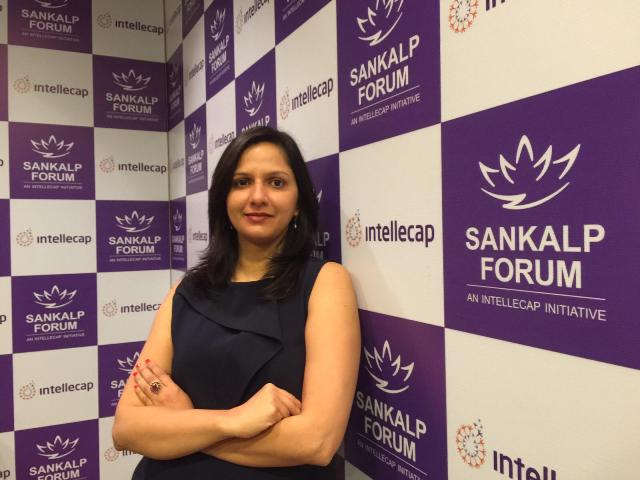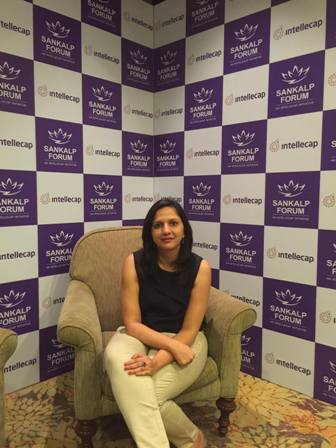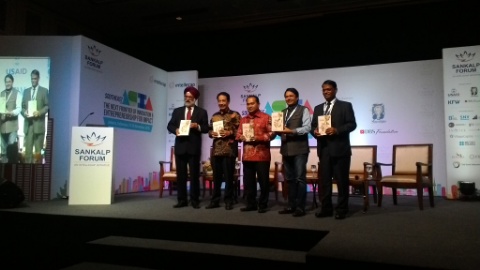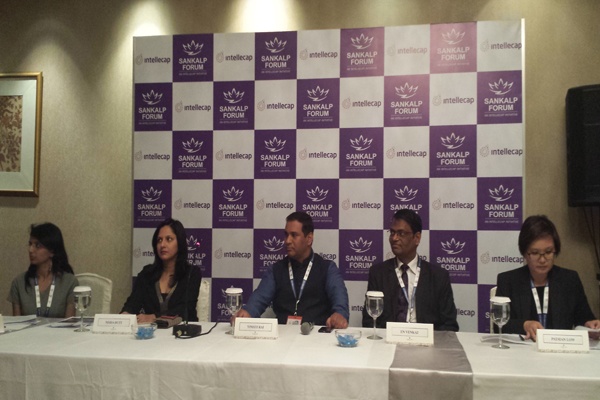-
Satuharapan | December, 02, 2015
Perusahaan India Lirik Investasi UKM Ramah Lingkungan dan Sosial
Read More -
https://swa.co.id/swa/trends/management/india-siap-support-ukm-di-indonesia | November, 22, 2015
Dukungan India untuk UKM di Indonesia
Read More -
merdeka | November, 19, 2015
Peran UKM RI pada perekonomian negara, terbesar di Asia Tenggara
Read More

Perusahaan India Lirik Investasi UKM Ramah Lingkungan dan Sosial

Ilustrasi. Hasil produk olahan sampah minuman kemasan. (Foto: Diah A.R)
JAKARTA, SATUHARAPAN.COM – Perusahaan yang bergerak di bidang pendanaan asal India, Intellecap, sedang melirik untuk berinvestasi di Indonesia khususnya untuk sektor usaha kecil dan menengah (UKM) yang bergerak di bidang sosial dan ramah lingkungan.
Dua pekan lalu, Intellecap menggelar Sankalp Forum yang merupakan pertemuan antara pelaku usaha, investor dan pemangku kebijakan seperti pemerintah. Dalam forum tersebut Intellecap memberikan penghargaan kepada pelaku usaha yang tetap memperhatikan lingkungannya dalam menjalankan bisnisnya.
Penghargaan tersebut jatuh kepada Bintang Sejahtera yang berasal dari Lombok Tengah. Perusahaan ini adalah perusahaan produk daur ulang plastik dan sejenisnya.
“(Bintang Sejahtera) Jadi semacam bank. Jadi orang menaruh sampah di mereka, orang tersebut nanti dikasih uang. Konsep seperti ini kita anggap sebagai sesuatu yang bisa dibilang baru dan juga punya sense of social bahkan environmental terhadap bisnis itu sendiri terutama di Indonesia,” kata Representatif Intellecap untuk Asia Tenggara, Rizki Nugraha Hamim Penna, di Galeri Cemara Menteng Jakarta Pusat, hari Rabu (2/12).
Sebagai langkah selanjutnya, Bintang Sejahtera mendapatkan hadiah suntikan modal sebesar USD 10.000 atau sekitar Rp 138 juta, akses jaringan global dan dukungan pembangunan kapasitas yang diperlukan. Ke depannya, penghargaan seperti ini akan terus dilakukan setiap tahun sehingga menumbuhkan daya saing UKM Indonesia dengan kualitas yang baik dengan tetap memperhatikan lingkungan dan memberikan gairah iklim kewirausahaan lebih tinggi lagi.
Menurutnya, dukungan semacam inilah yang diperlukan oleh UKM yang ada di Indonesia agar tetap ‘hidup’ karena UKM adalah tulang punggung perekonomian Indonesia. Apalagi, tambah dia, Indonesia saat ini akan memasuki masa perdagangan bebas wilayah ASEAN (MEA). Jika UKM Indonesia tidak didukung oleh pemerintah maupun investor asing dan dalam negeri maka Indonesia tidak akan bisa bersaing dan hanya menjadi pasar.
Rizki juga berpendapat, pemerintah tidak cukup dengan mengeluarkan paket kebijakan ekonomi saja tapi juga harus bersinergi dengan swasta.
“Nah sinergi itulah yang kemudian kita coba angkat dan saya pikir ini semangat yang sama juga dimiliki oleh perusahaan saya di Intellecap untuk kemudian bisa menumbuhkan UKM di Indonesia terutama kemudian bagaimana UKM-UKM ini bisa memberikan manfaat dan dampak yang lebih luas lagi kepada masyarakat yang engage di dalam sektor kewirausahaan dan perekonomian di Indonesia.”
Editor : Eben E. Siadari

CEO Intellecap: Ingin Bantu 300 Entrepreneur Indonesia
Sebelum bergabung dengan Intellecap sejak 6,5 tahun yang lalu, Nisha Dutt mengawali karier pertamanya di sebuah perusahaan konsultan di San Fransisco, Amerika Serikat. Wanita usia 38 tahun itu telah melanglang buana selama 15 tahun di berbagai perusahana multinasional dengan keahliannya dalam strategi bisnis dan operasi sebuah korporasi.
Lulusan Teknik Industri dan Manajemen dari Universitas Oklahoma serta peraih gelar MBA dari Universitas Ohio Amerika Serikat itu, punya kegemaran mengoperasikan pesawat terbang ke wilayah terdekat di India satu bulan sekali sebagai bagian dari penyegaran dari rutinitas hariannya.

Nisha Dutt, CEO Intellecap
Meski punya hobi yang berbeda dari wanita pada umumnya, namum prestasi dan pengalamannya di bidang manajemen rantai suplai (supply chain management), manajemen penyedia, dan outsourcing-offshoring, tidak perlu diragukan lagi. Terbukti dengan muncul namanya di berbagai perusahaan terbuka di India sebagai Board of Directors (BOD).
Di bawah komando Nisha, untuk pertama kalinya di Indonesia, Intellecap menyelenggarakan Sankalp Southeast Asia Summit 2015. Yaitu, wadah ekosistem kolaboratif bagi UKM dan perusahaan tahap awal (startUp) untuk mendukung pertumbuhan wirausaha lebih jauh lagi.
Menurut bungsu dari 3 bersaudara itu, sejak 2009 lewat event Sankalp Forum yang digarap Intellecap, telah menghubungkan lebih dari 400 perusahaan dengan investor dan penyandang dana, serta membangun komunitas sebesar 23,000 anggota.
Mengenai kedatangan pertama kalinya ke Indonesia, Nisha berharap Indonesia menjadi pintu pembuka Intellecap ke negara-negara Asia Tenggara lainnya. Apalagi dengan pertumbuhan bisnis pemula (star up) yang signifikan di Indonesia, Nisha menargetkan di bawah komandonya,
Intellecap dapat menjadi brand global yang berpengaruh dan bisa membantu 300 enterpreneur di Indonesia dalam kurun waktu 3 tahun ke depan.
Berikut ulasan eksklusif Syukron Ali dengan CEO Intellecap, Nisha Dutt di sela-sela acara Sankalp Forum yang diselenggarakan belum lama ini Jakarta:
Sejak kapan Anda menempati posisi CEO di Intellecap?
Saya sudah bergabung dengan Intellecap sejak 6,5 tahun yang lalu. Sedangkan untuk posisi sebagai CEO sendiri, baru saya emban sejak satu tahun ini. Sebelum menjadi CEO, saya menempati posisi di Intellecap sebagai konsultan dan tim riset.
Bagaimana dinamika pekerjaan Anda sebagai CEO?
Tentunya sangat senang, namun semakin tinggi posisi atau jabatan seseorang tanggung jawab yang diamanahkan akan semakin besar untuk membawa Intellecap menjadi perusahaan yang terus tumbuh dan menjadi pemimpin di bidang praktek konsultasi bisnis.
So far, saya sangat enjoy menjalankannya, sebab di Intellecap iklim pekerjaan yang saya rasa sangat berbeda dengan pekerjaan saya sebelumnya. Di Intellecap kami fokus pada pengembangan sebuah negara. Dan itu sangat menyenangkan.
Sebelumnya Anda bekerja di mana?
Sebelum bergabung dengan Intellecap 6,5 tahun yang lalu saya bekerja di Deloitte Counsulting di San fransisco Amerika Serikat. Dengan area pekerjaan seputar strategi pencapaian, merger dan akuisisi, pengembangan model operasi alternatif dan perencanan transisi bagi sebuah perusahaan.
Sejak tinggal dan meniti karier di Amerika Serikat selama 12 tahun, akhirnya saya putuskan untuk kembali ke India berkumpul bersama keluarga saya dan akhirnya saya bergabung dengan Intellecap.
Kenapa memilih Indonesia? Tidak ke negara tetangga di ASEAN lainnya?
Kami memilih Indonesia karena termasuk dari negara yang ekonominya sedang berkembang dan kami ingin membantu dalam pembentukan ekosistem yang lebih baik. Selain itu, kami melihat Indonesia dengan jumlah populasi penduduk yang banyak, sangat tepat untuk dikembangkan semangat kewirausahaanya. Sedangkan negara tetangga Indonesia seperti Singapura misalnya, ekosistemnya sudah terbentuk dan sudah berkembang pesat.
Untuk memasuki Indonesia sendiri, tidak ada kesulitan bagi kami, karena sebelumnya Aavishkaar yang juga satu grup dengan kami sudah ada di Indonesia terlebih dahulu sejak dua tahun yang lalu. Mereka di Indonesia melakukan konsolidasi dengan berbagai stakeholder untuk mengetahui peluang-peluang usaha dan memperikan investasi kepada perusahaan di Indonesia yang sesuai kreteria.
Apa itu Aavishkaar?
Jadi, Aavishkaar Frontier Fund, adalah perusahaan investasi (Venture Capital Investment) dari India yang juga partner Intellecap dalam membangun ekosistem bisnis yang berkesinambungan. Salah satu bentuk kegiatan rutin kami dengan Avishkaar adalah Sankalp Forum yang sudah dikerjakan di berbagai wilayah di India.
Berapa total investasi dari Aavishkaar?
Sejak tahun 2007, Aavishkaar telah memberikan sebanyak 46 investasi di berbagai sektor bisnis dengan total pendanaan mencapai US$ 200 juta dari berbagai negara seperti Bangladesh, Sri Lanka, Pakistan dan sekarang Indonesia.
Untuk Indonesia sendiri, Aavishkaar secara resmi memberikan investasi ke sektor perikanan, yang diberikan kepada North Atlantic Inc (NAI), anak perusahaan dari PT Bali Seafood untuk membantu nelayan Indonesia menjual hasil lautnya dalam keadaan beku ke supermarket-supermarket dan restoran-restoran di Amerika Utara dan Asia.
Untuk Indonesia, berapa nilai investasi yang dikeluarkan?
Dari total Investasi yang dialokasikan sebesar US$ 75 juta kira-kira sebesar 35%nya akan dialokasikan untuk investasi di Indonesia.
Untuk sektor apa saja?
Beberap sektor yang menjadi minat investasi yaitu di sektor pariwisata, kesehatan air dan sanitasi, finansial. Tapi untuk kepastian sektornya sendiri, saat ini kami masih terus melakukan konsolidasi dengan berbagai pihak di Indonesia.
Apa keunikan yang Anda tawarkan dalam investasi?
Dapat dipastikan perbedaan mendasar dari kami adalah kami tidak seperti sebuah korporasi yang membuka pabrik di suatu negara dan kami mengeruk segala potensinya untuk keuntungan kami pribadi. Namun, kami benar-benar ingin mengembangkan potensi lokal dari negara itu sendiri dengan membantu mengembangkan ekosistem bisnisnya sehingga penduduk lokal bisa menjadi pengusaha di tanah kelahirannya sendiri.
Kalau itu prinsip Anda, lalu apa benefit apa yang Anda terima?
Sebagaimana yang telah kami aplikasikan di India dan Afrika, dari segala pengetahuan, pengalaman yang kami bagikan dalam berbagai Sankalp forum bisa melahirkan banyak pengusaha dan dengan sendirinya ekosistem yang sudah dikembangkan akan semakin luas.
Para investor dapat memberikan investasinya ke berbagi pengusaha, dan pengusaha akan semakin berkembang yang berdampak pada pertumbuhan ekonomi yang semakin sehat. Karena kami percaya dengan semakin banyak kolaborasi maka akan tercipta sebuah iklim bisnis yang semakin baik dan segala ekosistemnya akan terus berkembang.

Apa targetnya di Indonesia?
Well, selama 7 tahun kami membuat Sankalp Forum di India dan kami berhasil membantu 600 entreprenuer mengembangkan bisnisnya. Harapan kami Indonesia bisa membantu sebanyak 300 entrepeneur dalam kurun waktu tiga tahun.
Bagaimana caranya?
Pastinya tidak hanya berhenti pada forum bisnis saja, kami juga akan membantu dalam fasilitas inkubasi para entrepreneur dan bekerjasama dengan berbagai instansi terkait seperti HIPMI untuk membangun partnership dalam membantu para entrepreneur di Indonesia.
Apa tips Anda untuk para entrepreneur?
Tidak hanya untuk para entrepreneur, siapa saja yang menjalankan karirnya harus mengambil resiko (take a risk) dalam bekerja untuk mendapatkan pengalaman dengan mengerjakan sesuatu yang berguna bagi dirinya. Kondisi ekonomi yang selalu berubah-ubah, harus membuat diri kita semakin inisiatif untuk melakukan sebuah terobosan, jangan takut dengan melakukan hal baru.
Lalu, percaya dengan apa yang sudah diambil, jujur serta inegritas dalam segala hal. Selanjutnya yang bisa mengendalikan iklim entrepeneur menjadi lebih baik adalah dengan menerapkan prinsip Empowerment. Dan prinsip itu pula yang kami terapkan selama ini di Intellecap
Bagaimana Anda membagi waktu untuk keluarga?
Ya, bekerja secara seimbang memang sangat diperlukan. Dan saya selalu mencoba untuk work balancing. Pada prinsipnya saya mencoba untuk kembali ke rumah setiap weekend di manapun saya bekerja. Saya juga selalu menempatkan diri pada tempat yang tepat, kapan harus bekerja secara fokus untuk Intellecap dan kapan harus melakukan hiburan disela-sela pekerjaan.
Apa harapan Anda untuk Intellecap?
Saya berharap Intellecap bisa menjadi global brand dan ambisi saya ingin membawa Intellecap menjadi 10 perusahaan terbesar di dunia. (EVA)

Dukungan India untuk UKM di Indonesia

Duta besar India di Indonesia, Gurjit Sigh (kiri) usai memberikan kata sambutannya dalam forum Sankalp di Jakarta.
Dalam sambutannya di acara Sankalp Southeast Asian Summit 2015 di Jakarta, Duta Besar India di Indonesia, Gurjit Singh menjelaskan bahwa antara India dan Indonesia memiliki banyak persamaan, di antaranya sama-sama negara demokrasi dengan jumlah populasi generasi muda (gen millenial) yang besar, serta memiliki peninggalan budaya masa lampau yang sangat berharga.
“Semakin besarnya generasi muda di antara ke dua negara ini, sudah seharusnya kita berkolaborasi untuk menumbuhkan pengusaha-pengusaha baru yang akan menjadi tulang punggung negara kita. Mari kita bekerjasa sama dan maju bersama,” ujar Gurjit di depan para peserta Sankalp Forum (19/11).
Sankalp forum sendiri adalah sebuah wadah pengembangan inklusi wirausaha yang diselenggarakan oleh Intellecap. Yaitu, sebuah perusahaan konsultasi berbasis di India. Menurut Nisha Dutt, Ceo Intellecap, sejak tahun 2009 Intellecap telah mempertemukan 400 pelaku Usah Kecil dan Menengah (UKM) dengan para investor. Dan telah melibatkan lebih dari 23,000 jaringan komunitas.

DBS Dukung Pengembangan Ekosistem Kewirausahaan Sosial

Jakarta- Asia Tenggara merupakan wilayah dengan ekonomi terbesar ketujuh di dunia dengan kontribusi Produk Domestik Bruto (PDB) mencapai US$2,4 triliun pada 2013 dan diperkirakan akan menduduki urutan keempat terbesar pada 2050. Salah satu faktor pendorong utama Asia Tenggara antara lain fokus pada pengembangan dan inovasi di bidang kewirausahaan, sebagaimana tecermin dari perluasan sektor Small Medium Enterprises (SME)—yang terdiri sekitar 30-60% dari PDB negara-negara di kawasan ini dan kontribusi terbesar dalam penyediaan lapangan kerja domestik. Oleh karena itu, dukungan terus-menerus bagi pengembangan kewirausahaan sangat penting untuk pertumbuhan yang berkelanjutan dan pembangunan ekonomi kawasan Asia Tenggara.
Dengan mempertemukan berbagai pemangku kepentingan guna menciptakan ekosistem yang lebih kolaboratif bagi wirausaha sosial (social enterprise/SE) di kawasan Asia Tenggara, Intellecap menggelar Sankalp Southeast Asia Summit 2015 bertema “The Next Frontier of Innovation and Entrepreneurship for Social Impact”.
Selama konferensi berlangsung, Patsian Low, Head of DBS Foundation, menghadiri sesi diskusi dan berbagi cerita mengenai bagaimana DBS Foundation membangun lingkungan yang lebih kolaboratif untuk mendorong kewirausahaan dan inovasi di Asia Tenggara. Seklain itu, adapula diskusi mengenai peran sektor swasta dalam mendorong pemerataan pertumbuhan melalui pengembangan kemitraan yang berkelanjutan antara swasta dan pemerintah.

Indonesia Tuan Rumah Sankalp SEA Summit 2015
(Antara)-Indonesia menjadi tuan rumah penyelengaraan Sankalp Southeast Asia Summit 2015. Acara ini merupakan wadah yang menyediakan segala hal yang dibutuhkan wirausahawan sosial. Dari mulai peluang investasi, jaringan, mentoring Internasional, serta inspirasi dari kewirausahaan sosial di Asia Tenggara, India, serta Afrika.

India Mulai Tertarik Berinvestasi di Indonesia

Dari kiri ke kanan: Direktur Sankalp Aparajita Agrawal, CEO of Intellecap Nisha Dutt, Co-founder & Chairman of Aavishkaar Vineet Rai, Partner at Aavishkaar En Venkat, dan Head of DBS Foundation Singapore Patsian Low saat konferensi pers di Shangri-La Hotel Jakarta Pusat, hari Kamis (19/11). (Foto: Diah A.R)
JAKARTA, SATUHARAPAN.COM – Iklim investasi di tengah melambatnya perekonomian Indonesia saat ini nampaknya tidak berdampak negatif bagi Indonesia. Nisha Dutt, CEO Intellecap yang merupakan perusahaan asal India dan Kenya mengatakan saat ini perekonomian Indonesia menunjukkan perkembangan dan potensi pasar maupun bisnis yang besar.
“Seperti yang kita ketahui, dalam beberapa waktu terakhir, perekonomian Indonesia menunjukkan perkembangan yang besar. Indonesia memiliki potensi perkembangan pasar dan bisnis yang besar dengan pertumbuhan startups dan konsumen kelas menengah yang juga melonjak tinggi,” kata Nisha dalam konferensi pers Sankalp Forum di Hotel Shangri-La Jalan Jenderal Sudirman Jakarta Pusat, hari Kamis (19/11).
“UKM Indonesia menjadi salah satu kontributor GDP tertinggi dibandingkan dengan negara tetangganya di ASEAN sebanyak 30-60 persen, membuat banyak yang tertarik untuk berinvestasi.”

Peran UKM RI pada perekonomian negara, terbesar di Asia Tenggara

Merdeka.com – CEO Intellecap Nisha Dutt menyatakan peran usaha kecil dan menengah (UKM) Indonesia pada perekonomian negara menjadi yang terbesar di Asia Tenggara. UKM Indonesia menyumbang setidaknya 57,9 persen pada produk domestik bruto (PDB/GDP) Tanah Air.
“UKM Indonesia menjadi salah satu kontributor GDP tertinggi dibandingkan dengan negara tetangga di ASEAN mencapai 60 persen,” ujarnya di Hotel Shangri-La, Jakarta, Kamis (19/11).
Pesatnya pertumbuhan UKM Indonesia membuat sektor ini menjadi ‘gadis seksi’ bagi investor untuk berinvestasi. Apalagi, Indonesia didukung oleh pertumbuhan jumlah penduduk kelas menengah yang pesat.
Maka dari itu, sebagai tempat wadah kolaborasi dalam menanggapi perkembangan potensi kewirausahaan sosial Asia Tenggara, saat ini tengah diselenggarakan Sankalp Southeast Asia Summit 2015.

Investor Asal India dan Afrika Lirik UKM Indonesia

Sankalp Southeast Asia Summit 2015, sebuah wadah kolaboratif untuk UKM (Usaha Kecil Menengah) tahap pemula, wirausaha dan inovator sosial di Asia Tenggara akan diadakan pertama kalinya di Indonesia. Gunanya, meningkatkan peluang investasi dan kolaborasi kewirausahaan di kawasan Asia Tenggara.
“Para investor dan venture capitalist dari Vietnam, Afrika, dan India saat ini melihat potensi wirausaha sosial di Asia Tenggara, terutama di Indonesia yang mana UKM mendominasi 90% ekosistem usaha,” ujar Nisha Dutt, CEO Intellecap.
Intellecap sebagai tuan rumah, berkomitmen untuk membangun ekosistem kewirausahaan di Indonesia. “Kami ingin memperluas pembangunan jaringan dan penanaman modal kepada UKM tahap pemula dengan cara mengidentifikasi dan mengenali usaha sosial yang inovatif dan memiliki potensi untuk berkembang,” imbuhnya.
Selain menemukan calon investor dan venture capitalist, para wirausahawan juga akan memahami cara membangun dan mengembangkan usaha lintas koridor India-Asia Tenggara-Afrika, mengembangkan usaha perempuan yang memiliki dampak sosial, serta inovasi dan teknologi usaha untuk segmen kecil dan menengah.

When Women Invest In Women, Many Problems Find A Solution
Investing in social entrepreneurs with a focus on women and gender equality can help tackle poverty in many communities.
“I was six years into a banking career. Unfortunately, I unknowingly handled a fraudulent transaction; the developments thereafter brought forth a slew of experiences and learnings about the ‘other world,’” recalls Teresa Njoroge, Founder, SMiMS Africa, an organization that entrepreneurship programmes for Reformed Prisoners & Ex-Prisoners.
After two years of braving a legal battle, Teresa was sentenced to jail, with her daughter, for a year. In prison, Teresa heard the stories of women from very poor backgrounds, illiterate, with scarce means to ensure a decent livelihood. The year in prison opened Teresa’s eyes to the startling poverty and injustice faced by women around the world.

Sankalp calls for inverted African ‘enterprise pyramid’
There are lots of enthusiastic young social entrepreneurs in Africa, but there is little support to help them realise their dreams, according to a report launched during the first day of the Sankalp Africa Summit in Nairobi, Kenya. Stephanie Bauer, senior manager at global enterprise consultancy firm Intellecap which published the report, explains why the ‘enterprise pyramid’ needs to be inverted.
With almost 200 million people aged between 15 and 24 – and predictions that this figure will double by 2045 – Africa is the youngest continent in the world.
Due to the lack of opportunities for traditional, waged employment in the continent’s labour market, Africa’s vast numbers of young adults are exploring entrepreneurship at scale.
While many are starting businesses because of a lack of other options, there is also a growing trend of young people choosing entrepreneurship over secure white-collar jobs, not only to make profits, but also to address social issues.
Reports & Policies
Our Impact Map

Sign up for our newsletter
© Copyright 2018 Intellecap Advisory Services Pvt. Ltd. - All Rights Reserved




